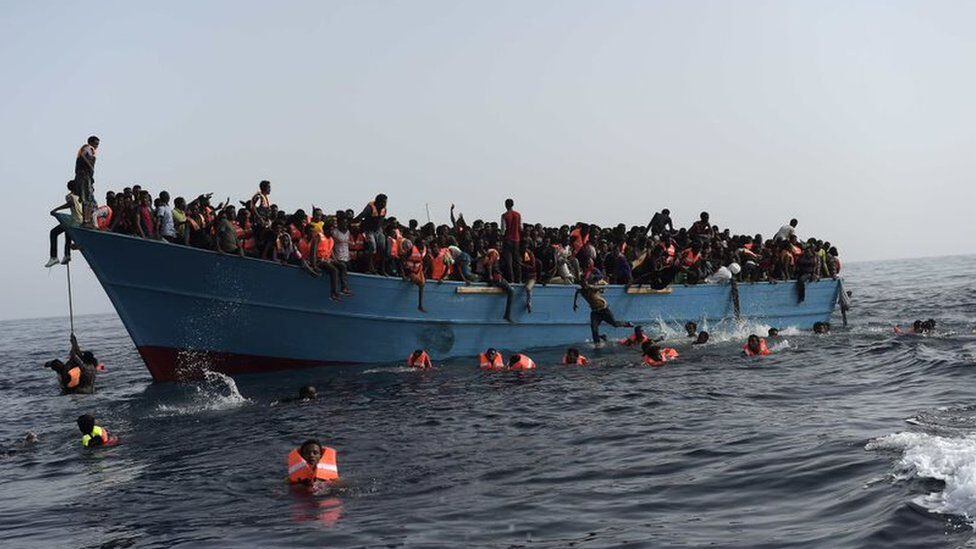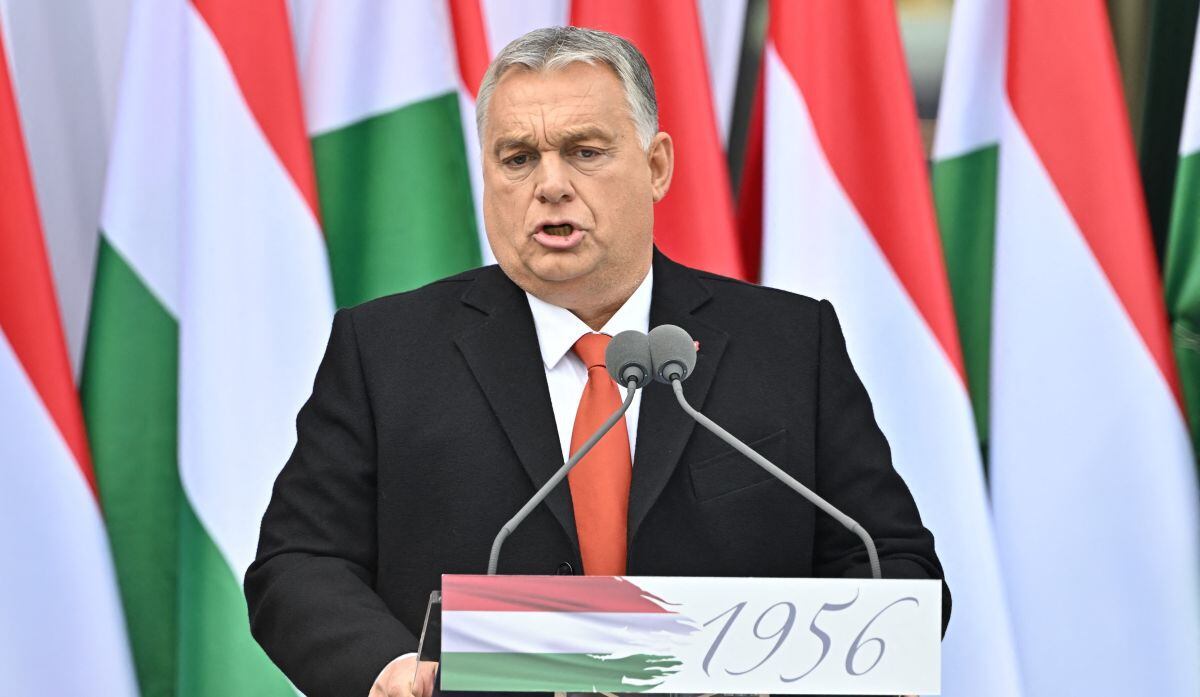This Wednesday the 30th, the belgian government announced that it will suspend asylum applications submitted by single men to give priority to families, women and children. The controversial measure adopted by Brussels responds to the limitations they experience as a result of a massive arrival of asylum seekers to their territory.
LOOK: Ukrainian troops are penetrating the Russian defenses on the southern front: what is the progress of the counteroffensive?
The decision has provoked furious criticism from humanitarian organizations, which describe it as an attack on the human rights of people who are trying to flee from the latent danger in their countries.
The Secretary of State for Asylum, Nicole de Moor, highlighted that her country has received almost 37,000 asylum requests, some 3,500 more than the total capacity of the country’s shelters.
On the other hand, some 62,000 refugees have arrived in Belgium since the Russian invasion of Ukraine began.
Since the Belgian reception system collapsed, the justice of that country has ruled more than 5,000 times in favor of migrants who sue the State for not providing them with the minimum conditions that the right to refuge contemplates.
Given this, De Moor pointed out that the measure will seek to “totally avoid having children on the streets this winter”, while men should be able to fend for themselves.
Belgium is not the only country that has had to take a controversial step in the face of the uncontrollable flow of migrants and asylum seekers.
In April 2022, the governments of the United Kingdom and Rwanda signed an agreement to send asylum seekers to the African country that the European nation could not accommodate. Immediately, the measure generated a wave of criticism and denunciations against the British government for considering the danger that would be run in Rwanda, an authoritarian state accused of torturing and murdering critics of the government.
In June 2023, the British Court of Appeal ended up frustrating this attempt by the British government by declaring it illegal, but the Rishi Sunak administration seems determined to carry out the plan, even if that means appealing the ruling to the Supreme Court of Justice. For now, the migrants will be sent to Ascension Island in the Atlantic while their applications are processed.
In parallel, the Sunak government began sending asylum seekers to the Bibby Stockholm, a huge barge anchored in the Portland harbor. This decision would respond to an attempt by London to reduce the costs involved in maintaining the 51,000 refugees that the State currently maintains in hotels.
It is estimated that annually the British government allocates some 4,600 million euros to the care of asylum seekers.
But August brought not only Bibby Stockholm, but also a modification that triples the fines for those who hire or house immigrants who arrived in the country irregularly. With the new legislature, those who employ illegal migrants will have to pay a fine of 50,000 euros; while those who rent a home to this group must pay 25 thousand euros for each migrant.
The controversies in the British handling of irregular migration, however, do not end there. Also at the beginning of August, the controversial Home Secretary, Suella Braverman, told the BBC that they were considering placing electronic bracelets on asylum seekers who cross the English Channel into the United Kingdom.
Unlike the British case, where the courts blocked the option of sending asylum seekers to Africa, in Spain, since February of this year, migrant deportation flights to Senegal have resumed. The last of these flights had been carried out in 2018.
The move has especially sparked fear among Senegalese applicants, who have preferred to flee and remain in hiding rather than return to the country from which they fled.
The last of these flights occurred on Wednesday the 30th, when 168 migrants rescued by Spanish patrols off the coast of Mauritania, aboard a boat headed for the Canary Islands, were sent to Senegal.
On the other hand, humanitarian organizations have denounced that Spain continues without implementing access to asylum seekers who arrive in Ceuta and Melilla, its enclaves in North Africa.
The IOM, Acnur, Human Rights Watch, Amnesty International and the local NGO Ruedas Solidarias have denounced that since the pandemic Spain blocked the applications and has not yet resumed them. In addition, they reported that since then the number of “hot returns” in the enclaves has increased, as the impediment by border guards that migrants submit their application is known.
Despite the fact that the current Prime Minister Giorgia Meloni has a strong anti-immigration discourse, there are members of the ruling coalition in Italy who still see it as insufficient. One of them is Deputy Prime Minister Matteo Salvini, who last week expressed the need for a “security decree” to be issued to contain the arrival of migrants.
Although he did not provide more details about what the Government was preparing in this regard, Salvini is remembered for his role as Interior Minister between 2018 and 2019, during the administration of Giuseppe Conte, who promoted a policy of closed ports to prevent the rescue ships operating in the Mediterranean to bring the refugees to the Italian shores.
This situation provoked a series of legal battles between the government and humanitarian organizations, many of which ended in favor of Rome.
Also in his time as minister, Salvini proposed to carry out a census of gypsies to find out their real dimension and to expel those who had not been born in Italy. The proposal, finally, did not prosper due to a law that prevents ethnic searches in the country.
Now, Salvini and Meloni are facing a record number with more than 100,000 migrants who have reached Italian shores so far this year, according to the Interior Ministry.

In June, Germany announced that it would toughen its anti-immigration policies in the face of the growing number of people illegally crossing its border with Poland.
With an approximate of 4,000 irregular crossings on this road only during the first quarter of the year, different phenomena have been seen in German internal politics. One of them is the rise in the polls of the far-right Alternative for Germany (AfD) party, a staunch opponent of migration.
Another phenomenon is the reaction of local politicians who seek to grant special powers to the police to carry out “hot returns” or establish permanent border controls.
Interior Minister Nancy Faeser has so far refused to establish such controls but the pressure fueled by the waves of migration, and the tight border control that Poland maintains, could end up forcing her to bend her arm.
Since he came to power in 2010, the Hungarian Prime Minister Viktor Orbán has led different confrontations with the European Union, especially over migration issues.
The right-wing politician applies a closed-fist law against foreigners, something that Pope Francis himself lamented during a mass celebrated in Hungary in April of this year.
Orbán has described the waves of migrants from Africa and the Middle East to Europe as an “invasion”. In 2015, the country enacted a controversial Emergency Law that allows them to deport undocumented immigrants without any prior procedure, a practice that continues to this day despite the fact that European courts have declared it illegal.
That year, in addition, the construction of a 175-kilometre fence on the border between Hungary and Serbia was completed, border patrols were reinforced and special powers were granted to use force in order to prevent illegal crossings, and prison sentences were established for cases specific.

In July this year, the European Union signed a memorandum of understanding with Tunisia that includes a series of areas in which the bloc will seek to work together with the Kais Saied government. As expected, due to its condition as one of the two doors to Europe for waves of migrants, the agreement includes a specific section for migration collaboration.
This memo, however, has been plagued with criticism. First, because the Saied government has been condemned by the international community -including the European Parliament- for practices that repress freedom of expression, judicial independence and society. In addition, the president accumulates a series of racist statements against sub-Saharan immigrants.
On the other hand, NGOs that specialize in the subject have denounced that with the agreement the European Union would be seeking to outsource migration control and leave it in the hands of African nations with a questionable human rights record.
This last list also includes Libya, the second gateway to the Old Continent, whose controversial border guard, which has had no qualms about shooting at humanitarian rescue boats operating in the Mediterranean, receives funding from Brussels and different EU governments.
Source: Elcomercio
I am Jack Morton and I work in 24 News Recorder. I mostly cover world news and I have also authored 24 news recorder. I find this work highly interesting and it allows me to keep up with current events happening around the world.

:quality(75)/cloudfront-us-east-1.images.arcpublishing.com/elcomercio/4H4HWMOBGVCBJJFYR3M3XWAXOU.jpg)




:quality(75)/cloudfront-us-east-1.images.arcpublishing.com/elcomercio/UVTSLXV3MZBFRAHORPXIFFNHT4.jpg)
